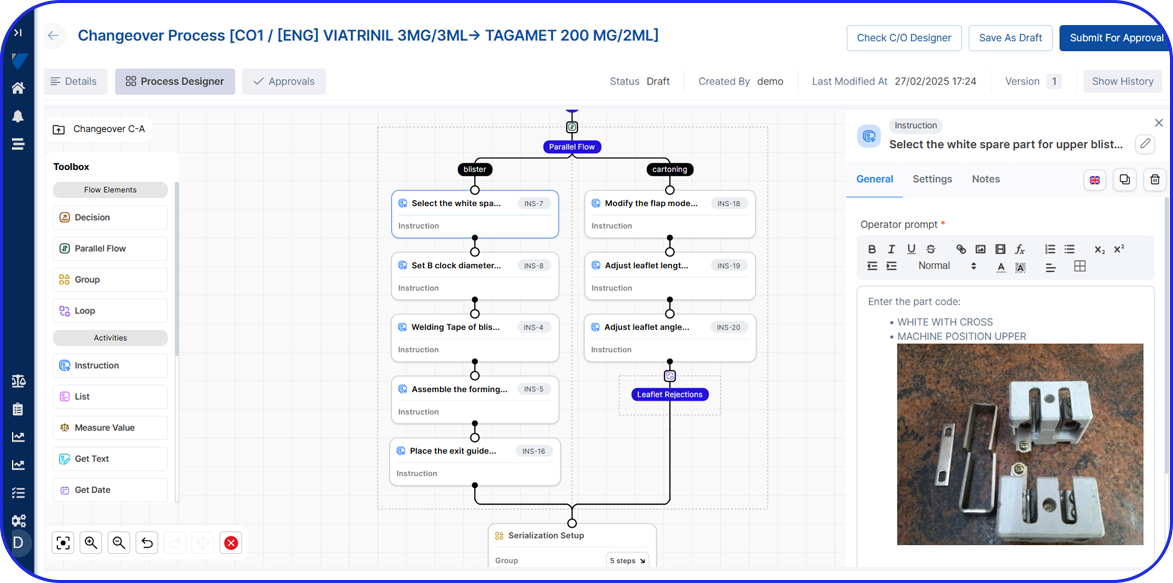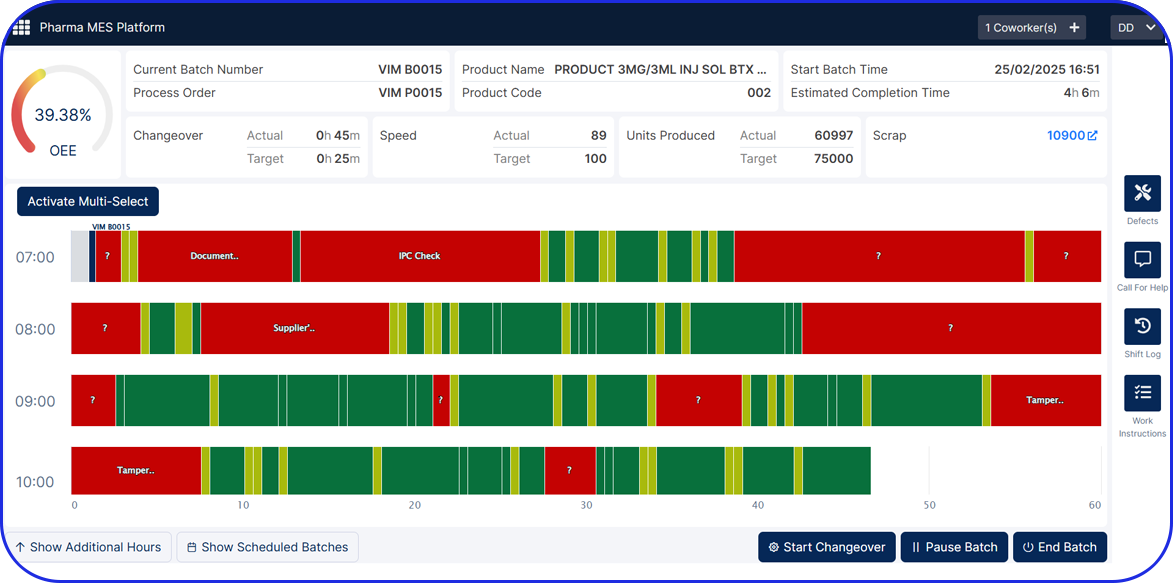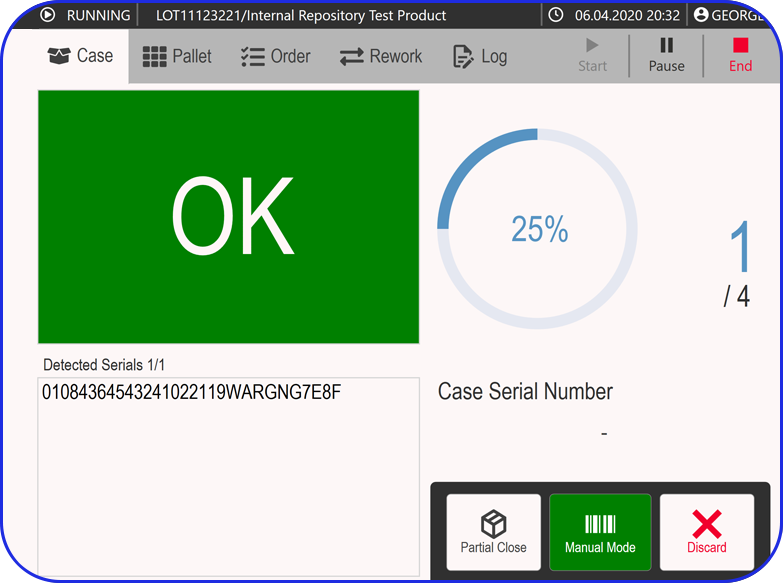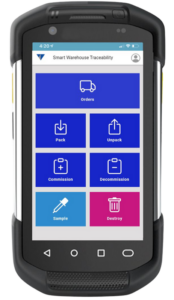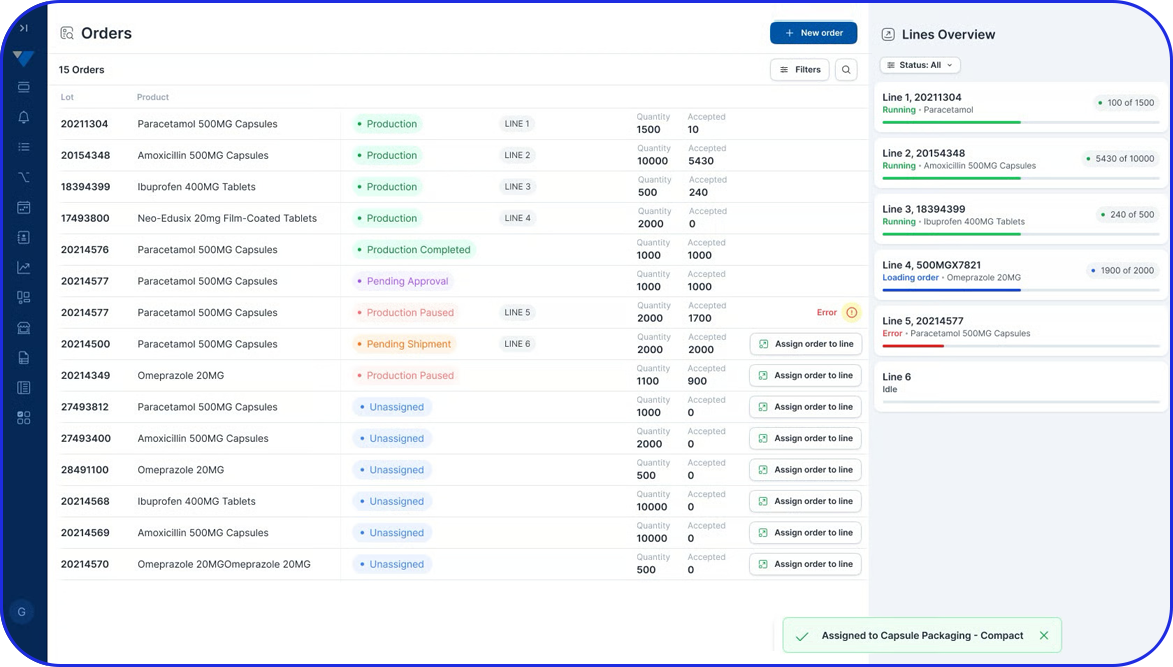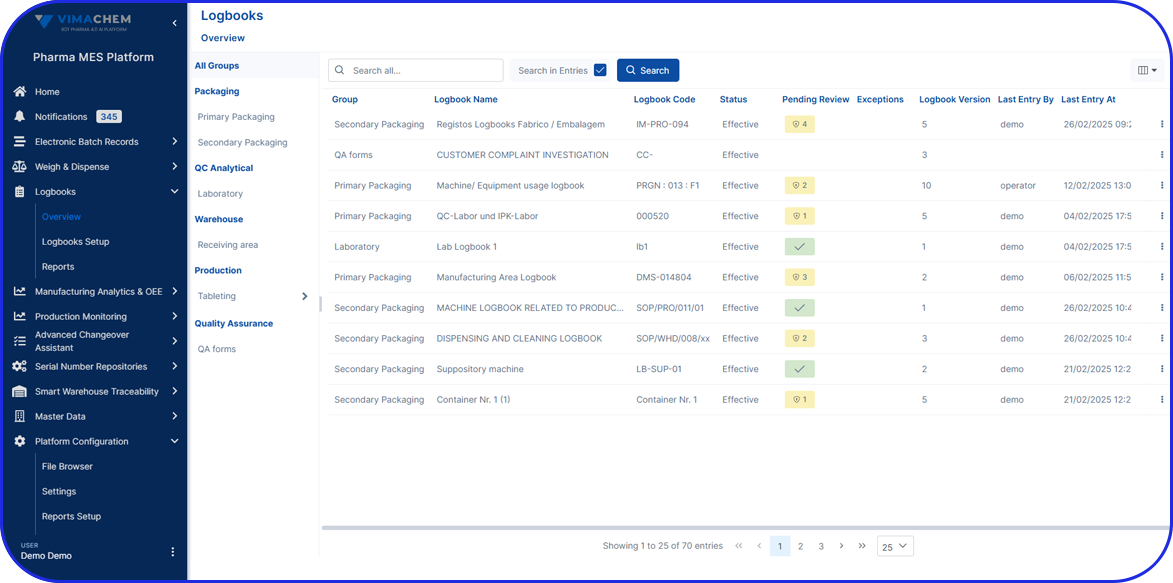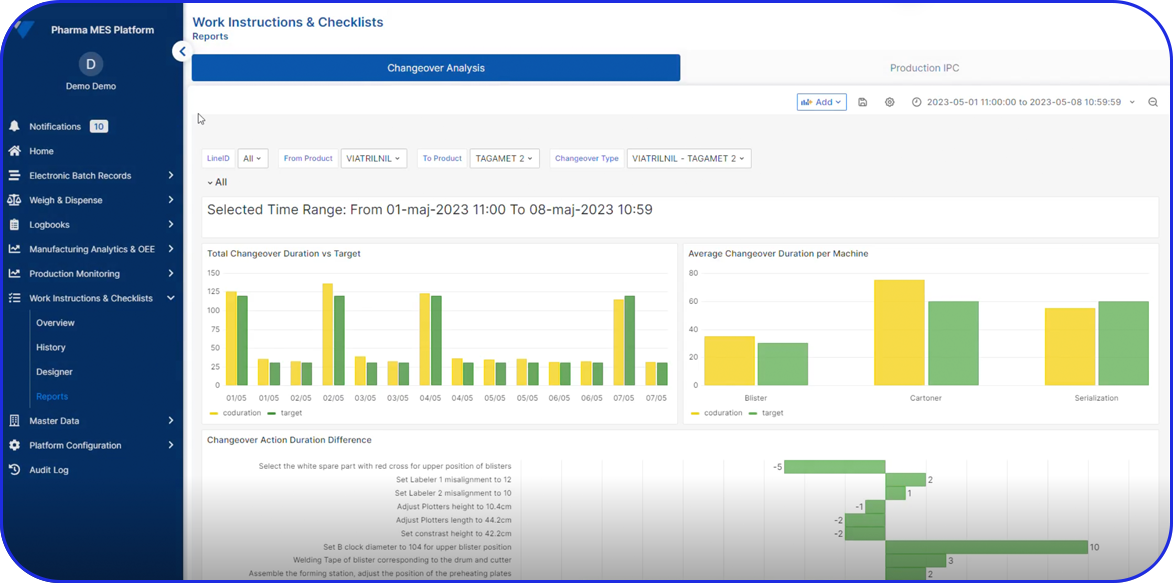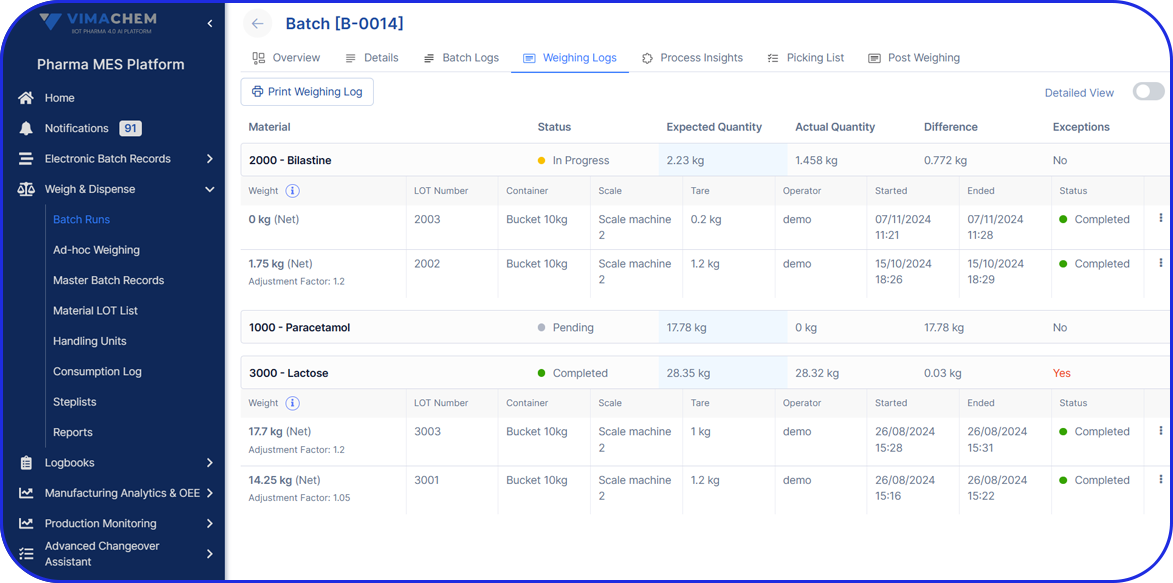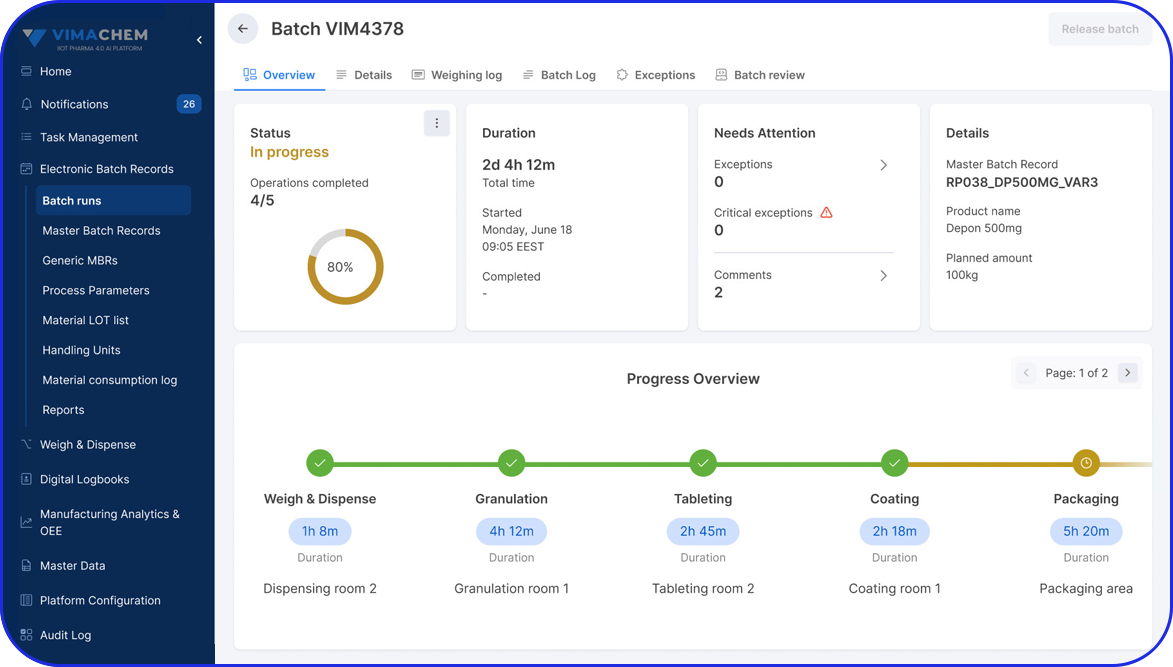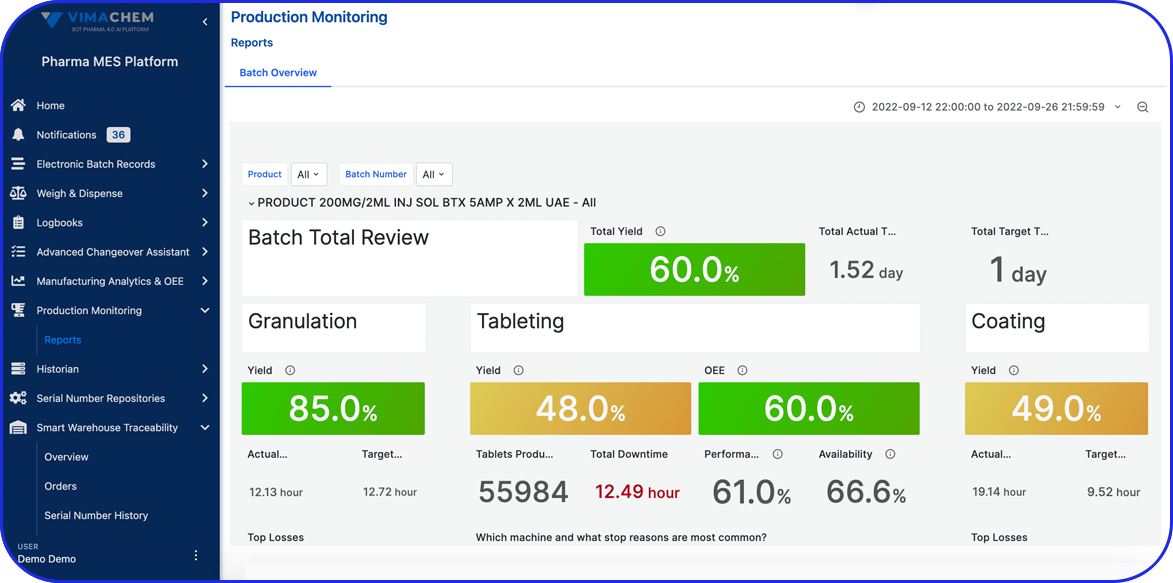Why GMP-Critical Processes Don’t Belong in ERP: W&D, Logbooks, and Electronic Batch Records (eBR)
Why GMP-Critical Processes Don’t Belong in ERP: W&D, Logbooks, and Electronic Batch Records (eBR)

Emma Hanley
Senior Product Marketing Manager
Introduction
ERP systems are powerful. They centralize planning, optimize resources, and give organizations visibility across the enterprise. It’s no surprise many pharma companies are tempted to extend ERP into every corner of their operations.
But there’s a hard truth: ERP is not designed to manage GMP-critical processes. Weighing & Dispensing (W&D), Equipment Logbooks, and Electronic Batch Records (eBR) are areas where compliance, precision, and operator guidance are essential. Attempting to force them into ERP creates risk, inefficiency, and hidden cost.
Let’s explore why.
The Role of ERP in Pharma Manufacturing
ERP is excellent for:
- Enterprise-level planning and scheduling.
- Procurement, finance, and materials management.
- End-to-end supply chain visibility.
But ERP falls short when managing regulated shop-floor activities where every entry, signature, and deviation must meet strict GMP standards.
Why ERP Isn't the Right Home for GMP-Critical Processes
1. Weighing & Dispensing (W&D)
- Requires integration with weighing scales, scanners, and dispensing devices.
- Must enforce recipes, tolerances, and material tracking.
- Needs audit-ready electronic signatures and deviation capture.
ERP lacks these capabilities natively, relying instead on costly and fragile customizations. In addition, ERP interfaces are not designed for shop-floor operators, resulting in complexity and a poor user experience during critical dispensing tasks.
2. Electronic Logbooks
- Equipment use, cleaning, calibration, and maintenance must be tracked in detail.
- Regulators expect structured, audit-ready data.
- ERP modules rarely capture the granularity or provide compliance controls.
Forcing logbooks into ERP risks incomplete records and operator workarounds, as the platforms lack intuitive, user-friendly interfaces for efficient data entry and retrieval. By contrast, MES logbook modules provide simple, operator-friendly design that ensures compliance.
3. Electronic Batch Records (eBR)
- Batch execution requires guided workflows, real-time monitoring, and structured sign-offs.
- Deviations and exceptions must be captured and resolved within the system.
- ERP screens are not designed for operator guidance, leading to inefficiency and errors.
ERP customization for eBR is notoriously complex, expensive, and hard to validate. MES solutions, however, provide guided workflows and intuitive interfaces that simplify execution, reduce training needs, and enable operators to complete batches accurately and efficiently.
The Compliance Challenge
Regulatory frameworks like FDA 21 CFR Part 11 and EU Annex 11 require:
- Secure, validated electronic records.
- Audit trails.
- Electronic signatures.
- Data integrity across systems.
MES solutions are built with these standards at the core. ERP, by contrast, treats them as add-ons, creating risk during audits. That’s why Vimachem not only delivers compliant MES modules, but also supports customers with Computerized System Validation (CSV) services; including IQ/PQ testing, validation documentation, and quality assurance, ensuring W&D, logbooks, and eBR are both compliant and validation-ready.
The Hidden Costs of ERP Customization
Trying to stretch ERP into GMP execution leads to:
- Heavy customization projects.
- Ongoing re-validation with every ERP update.
- Higher IT and compliance overhead.
- Slower digital transformation.
What looks like “one system simplicity” often becomes a costly, rigid setup.
MES: Purpose-Built for GMP Processes
A modern MES with dedicated modules covers:
- W&D: equipment connectivity, material control, recipe enforcement.
- Logbooks: electronic, compliant, operator-friendly records.
- eBR: guided execution, structured workflows, deviation handling.
MES sits alongside ERP, ensuring compliance on the shop floor while feeding data back to enterprise systems. This layered model is more resilient, auditable, and future-ready.
Discover how Vimachem's MES empowers pharma manufacturers with purpose-built modules for Weigh & Dispense, Logbooks, and eBR - ensuring compliance and efficiency while integrating seamlessly with your ERP.
The Right Model: ERP + MES Together
ERP = enterprise planning, scheduling, finance
MES = GMP-compliant execution (W&D, logbooks, eBR, and beyond)
This approach ensures each system does what it was designed for, while giving regulators and auditors the confidence that processes are controlled and records are reliable.
Conclusion
ERP plays a vital role in pharma manufacturing, but it should never be stretched into GMP-critical territory. Weighing & Dispensing, Logbooks, and Electronic Batch Records require compliance, precision, and operator guidance that ERP simply wasn’t built to provide.
By shifting these processes into MES, manufacturers strengthen compliance, reduce hidden costs, and create a scalable foundation for Pharma 4.0.

